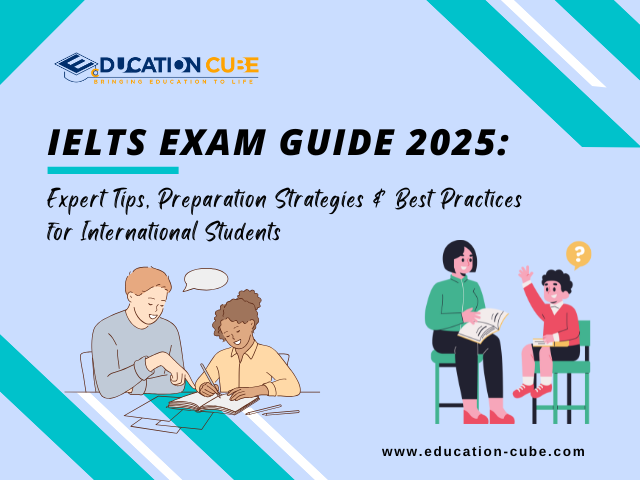
The Ultimate Guide for International Students on Studying in Canada
The top universities and institutions in the world are located in Canada. As a result, every year, a large number of students choose to continue their studies in Canada from all over the world.
Even though starting at a new school can be intimidating for anybody, overseas students have a number of extra considerations.
It can be simpler for you to acclimatize after you arrive in Canada if you do as much planning as possible beforehand.
1. Make a wise school selection
Start by locating the Designated Learning Institutions that accept overseas students as you plan your school decision. Pick one or two backup alternatives as a backup after deciding the option you like. To help you narrow down your options, take into account variables like geography or a school that specializes in the field of study you want to pursue.
2. Get ready for the proficiency exams
All international students must prove their language skills in either English or French before coming to Canada. You can be needed to take a particular kind of language competence test, depending on the school. To guarantee that the test you take is accepted by the institution, it is necessary to undertake careful study.
3. Obtain a study permit.
Applying for admission comes next after choosing a college or institution. Each institution's application procedure may have different rules. The Canadian government does advise international students to apply for their study visa at least a year in advance of the commencement date they intend.
You can submit an application for the permit online or in person at a local visa application centre. Typical specifications include:
- A current passport;
- French or English language proficiency;
- A letter of acceptance from your school attesting to your admission;
- Zero criminal history;
- Evidence of financial resources for your schooling and living costs in Canada;
- Proof that you'll leave Canada once you've finished your courses.
- We can help with all your visa applications.
4. Review your budget
- To obtain a study permit, it is important to demonstrate that you have enough financial resources to support yourself while living in Canada.
- This requires opening a bank account, which typically offers two basic options: savings accounts and chequing accounts.
- A savings account allows you to deposit money for safekeeping while earning interest on your balance, but interest rates can vary depending on the bank. On the other hand, a chequing account is where you can store your daily spending money, receive deposits, make debit card transactions or pay off credit cards.
5. Utilize the available resources for international students
- Colleges and universities in Canada are well-versed in hosting students from various countries and rely on it. As a result, they offer a range of resources specifically tailored to their international student population. If you have questions about visa regulations, part-time employment, scholarships, Canadian culture, or academic or mental health support, do not hesitate to seek assistance.
- Studying abroad can be stressful, and you may find yourself missing your family and customs from home. As a result, seeking mental health support services may be unexpected, but they are available and helpful.
Canada's colleges and universities are accustomed to and rely on welcoming students from different nations. They thus provide a variety of resources that are especially suited to their student body of internationals. Do not be afraid to ask for help if you have queries about visa policies, part-time jobs, scholarships, Canadian culture, or academic or mental health support.
It can be tough to study abroad, and you could start to long for your home country's traditions and relatives. As a result, it may be surprising to seek out mental health support services, but they are available and beneficial.
 Software Developer: Powering the Digital World Through Innovation
Software Developer: Powering the Digital World Through Innovation
 Global Pharmacy Programs: Elevate Your Career with World-Class Education and Practical Exposure
Global Pharmacy Programs: Elevate Your Career with World-Class Education and Practical Exposure
 Artificial Intelligence (AI) and Machine Learning (ML) Careers: Building the Future of Innovation
Artificial Intelligence (AI) and Machine Learning (ML) Careers: Building the Future of Innovation
 Beyond Rankings: How to Choose the Right Country and University for Higher Studies
Beyond Rankings: How to Choose the Right Country and University for Higher Studies
 Study Cloud Computing Abroad: Destinations, Courses, Careers & Trends for 2025
Study Cloud Computing Abroad: Destinations, Courses, Careers & Trends for 2025
 Choosing the Right Stream After Class 10: A Comprehensive Guide for Students
Choosing the Right Stream After Class 10: A Comprehensive Guide for Students
 IELTS Exam Guide 2025: Expert Tips, Preparation Strategies & Best Practices for International Students
IELTS Exam Guide 2025: Expert Tips, Preparation Strategies & Best Practices for International Students
 A Comprehensive Guide to Writing a Letter of Intent for Higher Education
A Comprehensive Guide to Writing a Letter of Intent for Higher Education
 Study in France: A Comprehensive Guide for International Students
Study in France: A Comprehensive Guide for International Students
 International Relations & Political Science: Studying Global Affairs Abroad
International Relations & Political Science: Studying Global Affairs Abroad
00 Comments
Leave a Comment